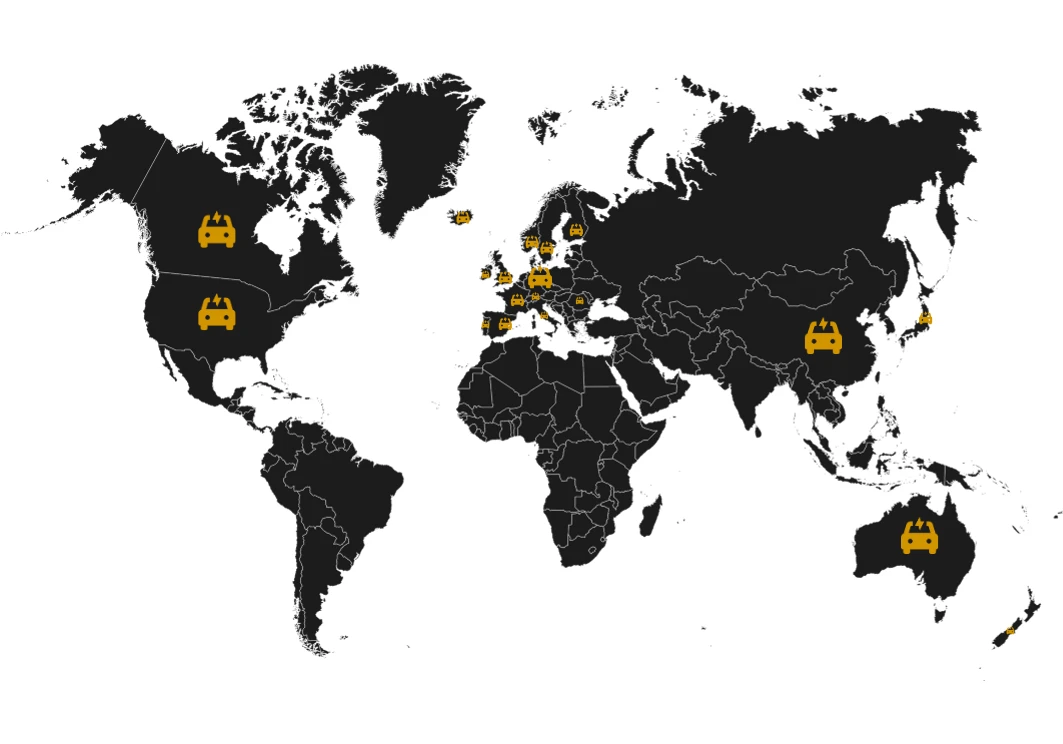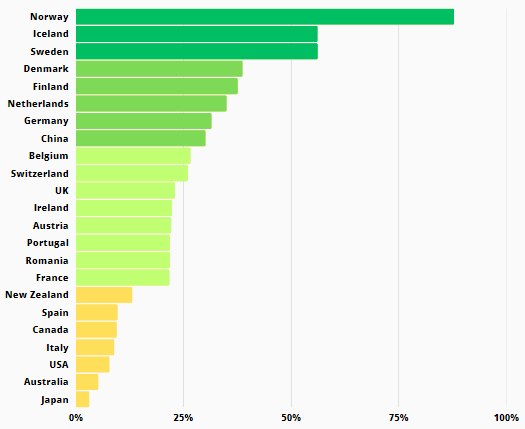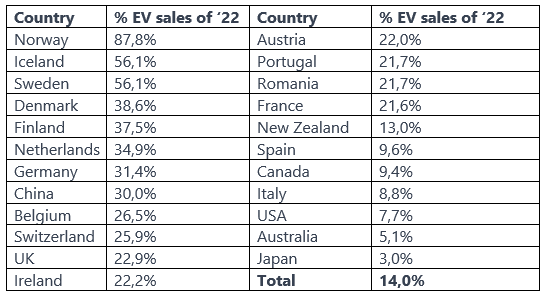Which countries are the most committed to electric vehicles?

In an era characterized by increasing concern over environmental sustainability and the need to reduce greenhouse gas emissions, the electrification of vehicles has emerged as a pivotal strategy for the automotive industry and governments worldwide. Electric vehicles (EVs) promise cleaner transportation, reduced reliance on fossil fuels, and improved air quality. This article delves into the countries at the forefront of the EV revolution, both in terms of policy initiatives and hosting the world's most prominent EV manufacturers.

1. China: The EV Superpower
Policy Initiatives: China stands out as a global leader in EV adoption and production. The Chinese government has enacted a slew of policies aimed at promoting EVs, including generous subsidies, tax incentives, and mandatory EV quotas for automakers. Cities like Beijing and Shanghai have implemented restrictions on gasoline-powered cars to encourage EV adoption.
Leading Manufacturers: China is home to some of the world's largest EV manufacturers, such as BYD, NIO, and XPeng Motors. These companies are competing not only domestically but also on the global stage, exporting EVs to various markets.
2. Norway: Pioneering EV Adoption
Policy Initiatives: Norway is often considered the poster child for EV adoption. The country offers substantial incentives for EV buyers, including exemptions from import taxes and road tolls, free parking, and access to bus lanes. Norway aims to phase out internal combustion engine (ICE) vehicles entirely by 2025.
Leading Manufacturers: While Norway may not host major EV manufacturers, it has a robust market for imported EVs. Tesla, in particular, has seen significant success in Norway.

3. United States: A Mixed Bag
Policy Initiatives: The U.S. federal government has offered tax credits for EV buyers, but the approach to EV incentives varies by state. States like California have aggressive EV promotion policies, including zero-emission vehicle (ZEV) mandates for automakers.
Leading Manufacturers: The United States is home to Tesla, the most influential EV manufacturer globally. Other established automakers like Ford, General Motors, and Nissan also produce EVs.
4. Germany: Shifting Gears towards Electrification
Policy Initiatives: Germany, known for its automotive prowess, has been gradually shifting towards EVs. The government offers incentives for EV buyers and plans to have 7-10 million EVs on the road by 2030.
Leading Manufacturers: German automakers, including Volkswagen, BMW, and Mercedes-Benz, have been investing heavily in EV technology and production.
5. Japan: Combining Tradition and Innovation
Policy Initiatives: Japan has set ambitious targets for EV adoption, aiming to ban new gasoline-powered vehicles by the mid-2030s. The government offers subsidies and tax breaks for EV buyers.
Leading Manufacturers: Japanese giants like Toyota and Nissan are investing heavily in EVs. Toyota, in particular, is known for its pioneering hybrid technology and is now transitioning to all-electric vehicles.

6. The Netherlands: The European Electric Hub
Policy Initiatives: The Netherlands has been promoting EV adoption through tax incentives, exemptions from road taxes, and charging infrastructure development. The government plans to phase out ICE vehicles by 2030.
Leading Manufacturers: While the Netherlands doesn't have major EV manufacturers, it has a burgeoning market for imported EVs from various European manufacturers.
Conclusion
The global push for the electrification of vehicles is gaining momentum, with countries implementing various policies and hosting influential EV manufacturers. China leads the charge in both production and policy support, while Norway has achieved remarkable adoption rates. The United States, Germany, Japan, and the Netherlands are also pivotal players in the EV revolution, with their unique approaches to promoting electric mobility. As these nations continue to invest in EV technology and infrastructure, the future of transportation is undoubtedly electric.






